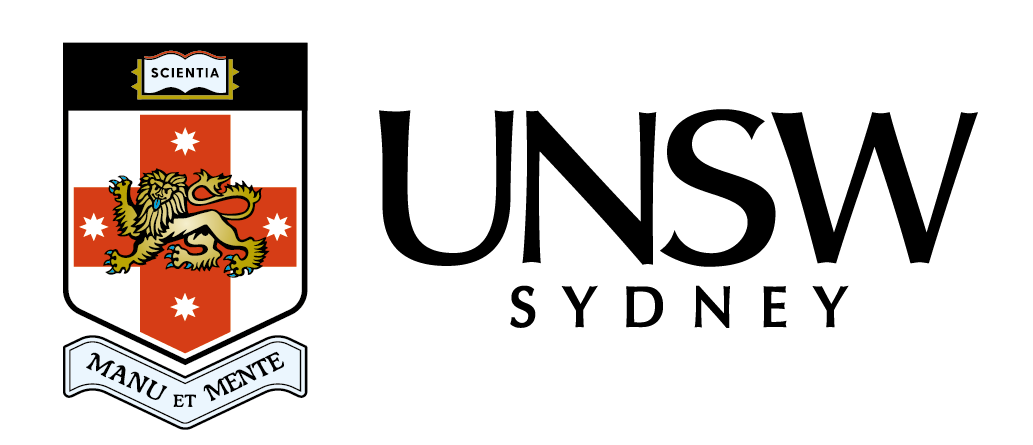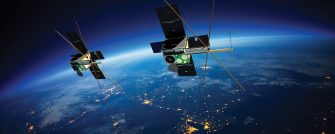Registrations for the conference have now closed
About the Conference
The Australian Space Domain Awareness and Space Traffic Management Conference brings together key researchers, users, and decision makers from the Australian space sector.
The conference will focus on developing a set of shared priorities and goals among the Australian SDA community to enable Australia to meet the evolving challenge of safely and responsibly operating within the space domain.
The conference will:
- Showcase new and emerging Australian SDA and STM techniques and technology
- Collectively identify and prioritize gaps in SDA capability and STM systems
- Collaboratively define a strategy to exploit Australia’s advantageous location to develop a world class SDA and STM niche
- Provide a means to benchmark and measure the collective Australian SDA capability each year
- Provide an inter-disciplinary forum to drive Australian SDA and STM policy and business initiatives
The conference will run over 3 full days, consisting of talks, workshops and poster sessions with key focus on: sensors; analysis and data processing; space catalogue modernisation and STM concepts; satellite protection; regulation/policy/ethics (mitigation guidelines); economics/business models to sustain Australian SDA efforts.
Key Dates
Poster abstracts submitted by: 7 November 2023
Registrations close: 16 November 2023
Conference: 21 to 23 November 2023, inclusive
Networking evening: 21 November 2023
Conference (Gala) dinner: 22 November 2023
Register Attendance
General Admission: $395
Student Admission: $195
Conference Dinner: $135
Defence Personnel Admission: $355.50
Defence Student Admission: $155.50
Poster Abstract
Submit an Abstract for the Poster Session. Closing date for submissions: 7 November 2023.
Information for participants
SSA/STM Poster Session 2023 Outline
Information for Participants
The conference will include a poster session, scheduled for the afternoon of day 2 (22 November, 2023). This session will provide an opportunity for conference participants to present their research in the fields space domain awareness and space traffic management. Posters may cover relevant basic research, technical developments, or improvements in practices. Submissions are encouraged (but not limited to) the following conference theme’s topics:
- Space Surveillance and Tracking
- Orbit Analysis and Prediction
- Decision Making, Manoeuvring, and Spacecraft Operations
- Ethics and Regulation
- Conjunction Analysis and Collision Avoidance
- Planetary Defence and Asteroid Detection
- Space weather/environment
- Cis-lunar Space Domain Awareness
- Cyber-threats and Resilience
The participants who would like to present a poster are encouraged to submit a short abstract describing their research work. The abstract should be no more than 250 words in length.
Venue
The poster session will take place in the foyer of Building 32 at ADFA.
Poster Format
Posters should be no larger than A1 size. Display boards will be provided. Posters will be attached to these using Velcro tabs.
Presentation
All the poster presenters are required to be present in-person next to their poster during the poster session. A camera operator and interviewer will travel around the session asking some quick questions from each of the poster presenters. The recording will be screened at the venue. Poster presenters will have the option of not being filmed in this way.
Keynote Speakers
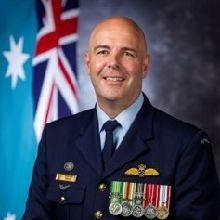
Group Captain Steven J. Henry
Group Captain Steven J. Henry
Director Force Generation, Defence Space Command
GPCAPT Henry joined the Royal Australian Air Force in 1995, and graduated from the Australian Defence Force Academy in 1997 with a Bachelor of Arts (Information Systems and Geography). After several postings as an Air Battle Manager, GPCAPT Henry posted to the 2nd Space Warning Squadron (2SWS), Buckley AFB, CO, to operate the Space Based Infrared System (2003 – 2005).
After the 2SWS, GPCAPT Henry was an Overhead Persistent Infra-Red Operations Analyst at Defence Science and Technology Group (2006), and later posted to HQ Joint Operations Command (2008 – 2011), where he established the precursor to the Australian Space Operations Centre and deployed to the Middle East.
GPCAPT Henry earned a Master of Strategic and Defence Studies at the Australian Command and Staff College in 2015 before taking up an exchange position with the U.S. Air Force at the Pentagon (2016 – 2017) where he assisted in the development and application of U.S. Defence space policy, particularly focused on SDA, STM, and the formation of the US Space Force.
In 2018 – 2019, GPCAPT Henry held an SDA capability development role at Air Force Headquarters and was the Air Force Liaison Officer to the Australian Space Agency. Next, he commanded the Surveillance and Control Training Unit (2020 – 2022) where he developed the Space Fundamentals Course for Defence. He completed a Master of Space Operations through UNSW in 2020.
In his current role as Director Force Generation at Defence Space Command, GPCAPT Henry is responsible for the preparedness, training, exercising, and assurance of ADF space forces.
GPCAPT Henry is married to Kellie. His 18-year-old twin sons (Matthew and Jacob) have flown the coop; his 7-year-old daughter, Sophie, insists on living at home so she can run the place.
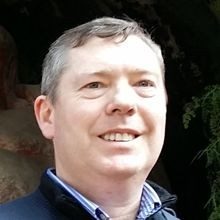
Ken Smart
Ken Smart
Radio Frequency Engineer, CSIRO
Ken is a senior Radio Frequency (RF) engineer working in the Antenna and Receiver Technologies Group at CSIRO. His current role involves leading the Space Object Tracking efforts as the acting SSA lead at CSIRO. In addition, he manages a team focused on Low-Noise Amplifiers and Electromagnetics.
Ken completed a Masters of Space Engineering at UNSW Canberra in 2021 and has worked on a number of CSIRO Space Technology Future Science Platform (Space FSP) projects. Including; Radio astronomy technologies for space situational awareness, Satellite ground stations for space & Earth observation scientific research, and High-speed satellite communication links based on terahertz technologies.
With over twenty years of experience in antenna and microwave measurement, Ken is a resident test engineer responsible for overseeing CSIRO Space and Astronomy's antenna measurement facilities.
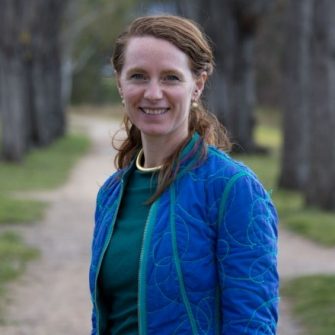
Dr. Cassandra Steer
Dr. Cassandra Steer
Deputy Director - Mission Specialists, Australian National University Institute for Space
Dr. Cassandra Steer is Deputy Director - Mission Specialists, of the Australian National University Institute for Space (InSpace). She is also Chair of the Australian Centre for Space Governance. Globally recognised for her expertise in space governance, space law, and space security, she has published widely on these topics, including the application of the law of armed conflict and use of force in outer space. She has consulted to the Australian, Canadian, and U.S. Departments of Defence, the Australian Space Agency, and Australian Department of Foreign Affairs and Trade on these issues. She has taught space law and space security at McGill University, the ANU College of Law, the National Security College, and the Australian Defence College.
Dr. Steer is multilingual and has lived and worked in five countries, in a range of educational, non-profit, and public institutions. She holds degrees in philosophy, civil law, international law, international criminal law, and has training in common law, comparative law, and space law. Dr. Steer is a member of the Australian Space Agency's Technical Advisory Group for Space Situational Awareness, a member of the Space Traffic Management Committee of the International Academy of Astronautics, and a member of the International Institute of Space Law.
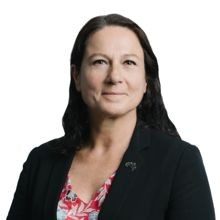
Ms. Aude Vignelles
Ms. Aude Vignelles
Chief Technology Officer, Australian Space Agency
Aude Vignelles is the Chief Technology Officer of the Australian Space Agency. As part of the senior executive team, Aude supports the Australian Space Agency with strategic technology advice and program delivery to grow a trusted and respected Australian space capability, using advanced insight and engagement with the Australian and international space sector.
Her office sets strategic priorities by developing and updating technology roadmaps across the Agency's seven priority areas. She identifies, develops, and delivers domestic and international space programs, represents the Agency at international technology forums, maintains awareness of the state of the art for the space sector as the Technology Authority for the Agency, and sustains strong engagement with the local industry and scientific community.
Aude is a space and aeronautics system engineer who started her career at the European Space Agency (ESA) in the Netherlands. She became a source of expertise for the test campaign of all scientific programs run by ESA from their early phase, such as Rosetta. She was appointed Test Manager for the X-ray Multi Mirror mission (XMM), then the largest scientific space program ever carried out by ESA. She then moved to London where she started a career in the broadcast industry and successfully integrated the first digital terrestrial broadcast center in the world. She continued this career in broadcast and media here in Australia with Foxtel and Austar. She later was appointed Vice President of Technicolor, covering all programs in the APAC region. Prior to her CTO role, Aude was the Executive Manager, Satellite & Fixed Wireless Operations at nbn.
Aude has been living in Australia for the past 22 years and has contributed to the Australian space community through White Papers, events at conferences with the growing start-up community in Australia, and promotion for Women in Space and Engineering at universities.

Damian Hall
Damian Hall
Damian Hall graduated from the University of Tasmania with a PhD in cosmic-ray physics in 1995. During 1995 he worked for the Australian Antarctic Division conducting research on satellite observations and remote sensing of Antarctica and undertook postdoctoral research at Shinshu University in Japan during 1996 to 1998. Damian joined the Australian Defence Science and Technology Organisation in October 1998 as a research scientist working on surveillance systems modelling and assessment in the Intelligence Surveillance and Reconnaissance (ISR) Division.
In 2002 he was promoted to Senior Research Scientist in Electronic Warfare (EW) Division where he worked in the Land and Force Level EW areas, leading the development of ground vehicle signature and vulnerability assessments, and assessment of distributed EW systems.
In 2007, Damian was promoted to Group Leader of the Distributed EW research program focussed on modelling, analysis and experimentation of distributed EW systems and electronic warfare battle management. In that role he was program manager or S&T lead in a number of collaborative EW programs with North American defence organisations and managed the successful development of EW planning and decision aid tools for the EA-18G Growler program and other integrated EW projects.
During 2018 -2021 Damian was a Counsellor Defence S&T in the Australian Embassy in Washington DC. In this role, he was responsible for strengthening Australia’s Defence cooperation and collaboration within the Defence, industry, and innovation sectors across North America, including engaging directly with the Office of Naval Research and US Naval warfare centres, the US Air Force Research Laboratories, the Office of the Under-Secretary of Defence Research and Engineering, and Defence Advanced Research Programs Agency (DARPA).
Upon returning to Australia, Damian was the S&T Program Lead for Army ISREW and has been acting as the Program Leader for Space since July 2022.
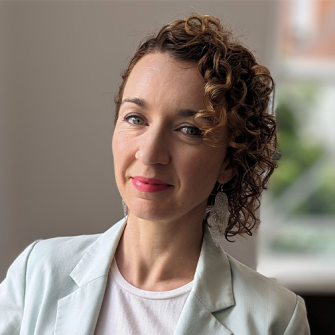
Zandria Farrell
Zandria Farrell
National Manager – Space
National Security and Space
Australian Government
Bureau of Meteorology
As an engagement and strategic specialist, Zandria currently works at the Bureau of Meteorology as the National Manager for Space in the National Security and Space Program. Currently Zandria focused on the establishment of the Bureau's dedicated spaceflight service, which actively supports Australia's rocket launch and space situational awareness activities and works closely with government and industry partners. Since 2010 Zandria has held progressive roles in Federal Government, across portfolios including Environment and Industry. In 2018 she joined the Australian Space Agency in the role of International Engagement Lead, where she was responsible for building relationships and progressing international agreements with key space agencies, before joining the Bureau in 2020.
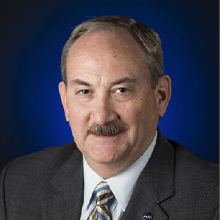
Lindley Johnson
Lindley Johnson
NASA Planetary Defense Officer and Lead Program Executive
Lindley Johnson is assigned to NASA Headquarters Science Mission Directorate, Planetary Science Division, as the NASA Planetary Defense Officer and Lead Program Executive for the Planetary Defense Coordination Office, tasked with warning and response to any potential impact of Earth by an asteroid or comet. Prior to NASA he served 23 years of Air Force active duty, obtained the rank of lieutenant colonel and was awarded numerous military honors and decorations while working on a variety of national security space systems. After joining NASA in 2003, he became the Program Executive for NASA’s Deep Impact mission to comet Tempel 1, launched in January 2005 to deliver an impact probe to the comet’s surface on July 4th, 2005, and explore the composition and interior structure of comets. NASA’s Near-Earth Object Observations program has discovered over 26,000 near-Earth asteroids and comets since Lindley became its manager, about 92% of the total known. He led the establishment of the Planetary Defense Coordination Office at NASA in January 2016. Lindley has received the NASA Exceptional Achievement Medal for his work on comet and asteroid missions and the NASA Outstanding Leadership Medal for his efforts to establish the Planetary Defense Program in the United States. Asteroid 5905 (1989 CJ1) is named “Johnson” to recognize Lindley’s efforts in detecting Near Earth Objects.
Directions
The main conference venue is Building 32 on the campus of UNSW Canberra at the Australian Defence Force Academy
Address: Northcott Dr, Campbell ACT 2600.
Parking is available on Long Tan Road and Kapyong Road.
ADFA is serviced by ACTION Bus lines 54, 55, 56, and 59.
The closing dinner will be held at the National Press Club.
Address: 16 National Circuit, Barton ACT 2600.
Schedule
Conference Day 1
21 November 2023
Hear from our invited speakers from across government, Defence, and industry regarding the current and future challenges facing Australia's safe and assured use of the space domain through a series of keynote and panel discussions. The day will be used to raise awareness of the opportunities and risks that face the global space community through an Australian lens. The day concludes with a networking drinks event, providing an opportunity to reflect on the day's insights while mixing and mingling with conference attendees.
Conference Day 2
22 November 2023
A series of roundtable discussions will bring the attendees together to tackle critical questions facing Australia's activity within the space domain awareness and space traffic management global community. The latest research from across academia and industry will be showcased through a poster session, allowing the attendees to directly engage presenters on their current and emerging innovation to advance Australia's space domain awareness and space traffic management capabilities. The day shall conclude with the conference dinner held at the National Press Club of Australia.
Conference Day 3
23 November 2023
The morning will identify the major outcomes from the previous day's roundtable discussions, facilitated by panel discussions and interactive polling of the audience. The afternoon session will explore where the legal, ethical, strategic, and technical streams of space domain awareness collide through the inaugural "Great Space Debate". The conference will conclude with presentations on initiatives and opportunities for the community to engage collaboratively to grow a strong and valuable Australian niche within the global space domain awareness and space traffic management community.
- Day one
- Day two
- Day three
Time
Description
09h00 - 09h20
Conference welcome and Day 1 instructions
09h20 - 10h00
Keynote: Aude Vignelles, CTO Australian Space Agency
10h00 - 10h40
Keynote: GPCPT Steven Henry, Defence Space Command
10h40 - 11h00
Morning Tea
11h00 - 12h00
Panel Session: Space Traffic Management
12h00 - 12h30
Keynote: Damian Hall, DSTG
12h30 - 13h00
Andrew Barr, Chief Minister of the ACT
13h00 - 14h00
Lunch
14h00 - 14h30
Keynote: Cassandra Steer, ACSG
14h30 - 15h30
Panel Session: Australian Sensors
15h30 - 15h50
Afternoon Tea
15h50 - 16h20
Keynote: Ken Smart, CSIRO
16h20 - 16h50
Keynote: Zandria Farrell, Space Weather Services
16h50 - 17h00
Wrap up
17h00
Networking Drinks, Officers' Mess, ADFA
Time
Description
08h45 - 09h00
Day 2 instructions
09h00 - 10h30
Round Table Session 1: Exploring the value proposition for Australian SDM and STM
10h30 - 11h00
Coffee/Tea break
11h00 - 12h30
Round Table Session 2: Identifying the civil and defence challenges within the space domain
12h30 - 13h30
Lunch
13h30 - 15h00
Round Table Session 3: The impact of disruption in the space domain to SDA and STM
15h00 - 15h30
Coffee/Tea break
15h30 - 17h30
Poster Session
17h30 - 18h00
Day two session close/travel
18h00 - 21h30
Dinner at the National Press Club
Time
Description
09h00 - 09h10
Opening
09h10 - 09h30
Keynote: Lindley Johnson, NASA Planetary Defence Office
09h30 - 10h00
Planetary defence panel session
10h00 - 10h30
Morning Tea
10h30 - 11h15
Day 2 Roundtable Summary
11h15 - 12h15
Panel Session: Space-based assets
12h15 - 13h15
Lunch
13h15 - 14h15
Panel Session: Academic panel
14h15 - 15h45
The Great Space Debate
15h45 - 16h00
Conference close
Kindly supported by
About UNSW Canberra Space
UNSW Canberra Space is a leader in the field of advanced intelligent satellite systems, developing and providing space and artificial intelligence research, technology and education to help meet national and global needs.
